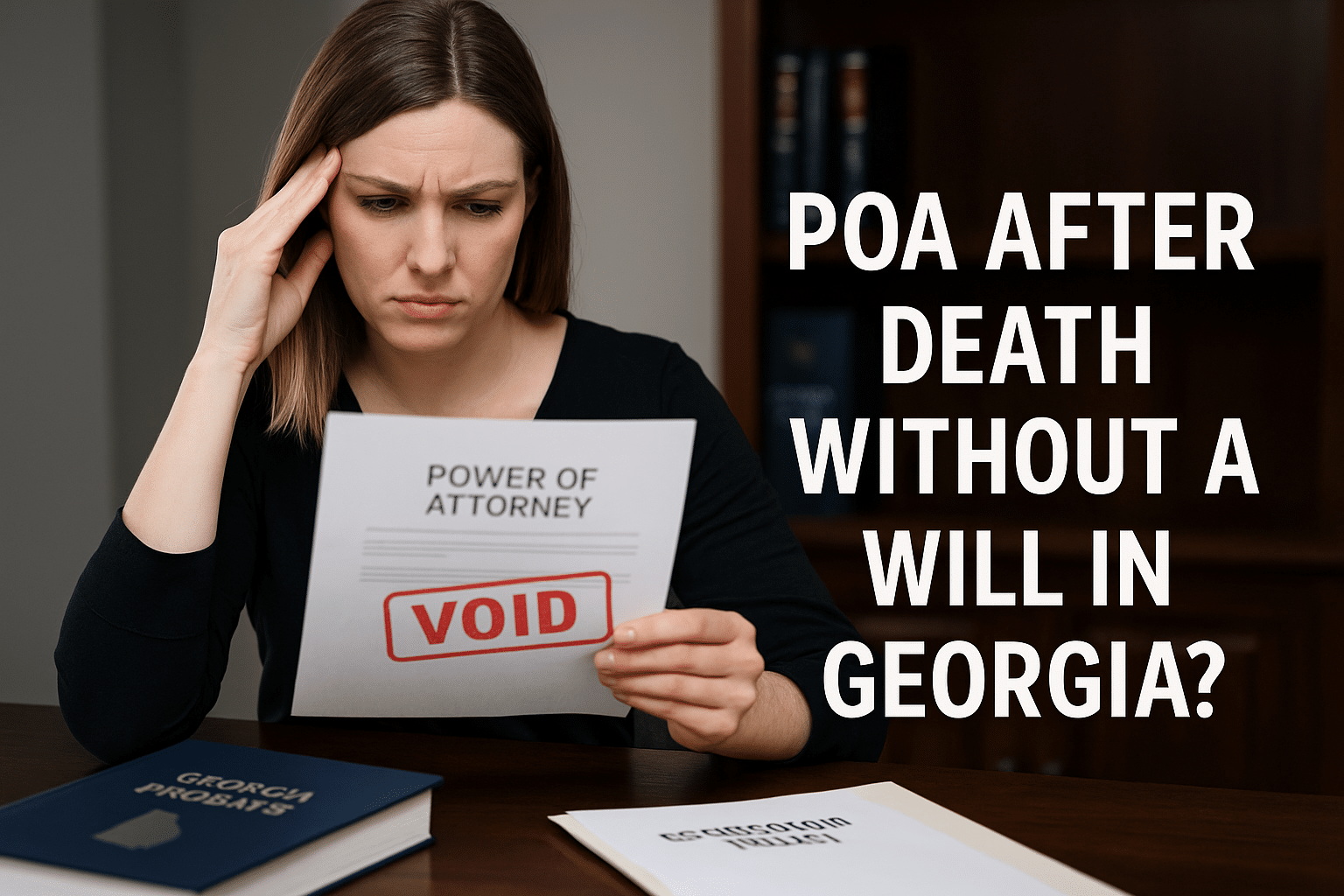A common misconception is that a power of attorney continues after someone dies. It doesn’t.
In Georgia, power of attorney (POA) ends at the moment of death—regardless of whether the person had a will. So if there’s no will, the question becomes: who has legal authority to act on behalf of the estate?
Let’s break down how that works.
Power of Attorney Ends at Death
A power of attorney is a legal tool that lets someone act on your behalf during your lifetime—typically for financial or medical decisions.
But once you pass away:
- Your POA agent loses all authority
- They cannot access accounts, sell property, or act on behalf of the estate
- Control shifts to a court-appointed personal representative (if no will) or executor (if there is a will)
So if there’s no will, no one automatically steps in with legal power—there’s a process that must be followed.
👉 Learn more: What You Should Know About Guardianship
What Happens If There’s No Will in Georgia?
Dying without a will is called dying intestate. In Georgia, this means:
- The probate court steps in
- A family member or interested party must file a petition for administration
- The court will appoint an administrator (similar to an executor) to manage the estate
Until that appointment is made, no one has legal authority to act for the estate—not even a former power of attorney agent.
Who Can Be Appointed Administrator?
Georgia law gives priority to certain individuals when appointing an estate administrator:
- Spouse
- Adult children
- Other heirs
- A creditor, if no family member steps forward
- The county administrator as a last resort
The court’s goal is to appoint someone who is capable, willing, and has no serious conflicts of interest.
What Can an Administrator Do?
Once appointed by the probate court, the administrator:
- Collects and secures the deceased’s assets
- Pays outstanding debts and taxes
- Distributes remaining property to heirs under Georgia’s intestacy laws
They act similarly to an executor, but their powers come from the court—not from a will.
👉 Explore: Georgia Inheritance Laws With a Will
What If There’s a Dispute?
If multiple people want to serve—or if heirs don’t agree—Georgia probate court will review:
- The relationship of each party to the deceased
- The best interests of the estate
- Whether anyone is disqualified (e.g., due to a felony conviction)
In some cases, the court may require the administrator to post a bond or file regular reports.
Final Thoughts
In Georgia, power of attorney ends at death, and a will is the only way to control who manages your estate. Without one, the court decides who steps in—and that may not be the person you would’ve chosen.
To avoid confusion, court delays, or family disputes, it’s wise to:
- Create a legally valid will
- Choose your executor ahead of time
- Coordinate your estate plan with your powers of attorney and other legal documents
At Hurban Law, LLC, we help Georgia families put the right plans in place so there’s no guessing—or scrambling—when the time comes.
Contact us to take control of your estate planning today.





